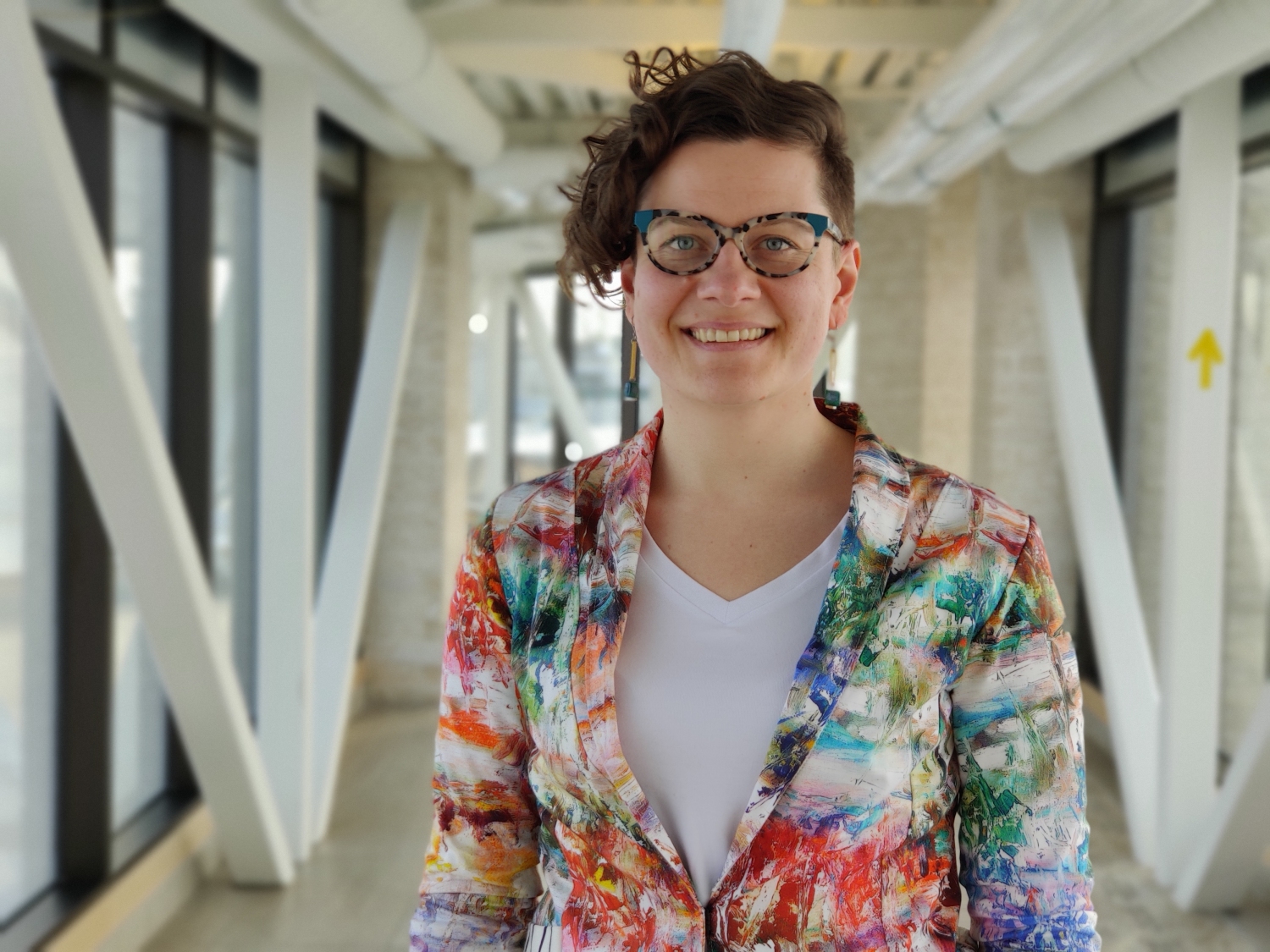News and Releases

Faculty Profiles
Faculty: In Their Own Words - Dr. Christine Kampen Robinson
Tuesday, March 23, 2021 @ 9:00 AM | Faculty Profiles

Dr. Christine Kampen Robinson has worked at CMU part-time since 2018 and full-time since 2020. She is Director of the Centre for Career and Vocation, Director of Practicum, and Teaching Assistant Professor of Practicum and Social Science.
What do you love about your work here?
One of the things I love most is the opportunity I have to listen to students' stories. Not just in order to find a placement that is a good fit for them, but really to give them the space to talk about who they are and what they care about, what kinds of connections they see between their academics and other work they're doing and problems they want to solve in the world, and working with them to find those connections.
What are you teaching right now that you're most excited about?
A new course that I've developed called Vocation, Meaning, and Work. It deals with what you're going to do with the rest of your life. Not because you will know the answer by the end of the course, but the purpose is to talk through some of the big ideas that shape how we think about things like vocation, work, success, and personal fulfillment. It's an effort to get students out of this spinning thing that is happening as they're navigating university, a decision paralysis because there are so many choices, and that's particularly true in a liberal arts context. The goal of the course is to give people a framework and metrics for thinking about what are your values, skills, what are the calls that you hear, and putting that together in a way that puts people in a position to make decisions confidently. It's just a joy!
Tell me about the Centre for Career and Vocation?
It's an effort to pull together initiatives in our campus community and put additional supports in place that we haven't had in a really robust way before, which fall into three categories. The first is career development and work support for students. Everything from career advising to a more comprehensive list of job postings, resume writing, cover letter writing, and interview support. The second piece is our practicum program or work-integrated learning. All of our undergraduates have the opportunity to do a work-integrated learning placement. The third piece is vocation focused advising and curriculum development. To first of all recognize the excellent work that faculty and staff are already doing in providing vocational advising support and then strengthening that through professional development and resource development and being more intentional about integrating it into curriculum.
Why is work-integrated learning important?
It's an opportunity for students to explicitly connect the dots between what's happening inside the classroom and outside the classroom. You'll notice I'm careful not to say academic and real world because that's a dichotomy that's unhelpful for everyone. For students, they're not here to prepare for some kind of real life that happens later. Their real life is happening now! Yes, they're learning about certain concepts in classes, but that doesn't make them not real. Work-integrated learning can be an opportunity for them to find other applications for things they're doing in their classroom, but students are also bringing what they're learning from their practicum placement back into the classroom. CMU is the only school in Canada that requires work-integrated learning for the majority of the undergraduate student population. It's interesting to me that already from the beginning, that was something that was so valued. I've recently been writing a paper about our work-integrated learning program and I see so much rootedness in Mennonite orientation to service and connecting academic learning to practical application.
What are you reading for enjoyment?
I'm reading Teaching to Transgress, by bell hooks. Especially in a semester when I'm teaching, something that I want at the forefront of my mind is how am I creating an inclusive space, how am I unsettling students' comfort zones but doing that in a way that invites them in to feeling a bit uncomfortable? Because I think the best learning happens when you're uncomfortable. It's important for me to focus on relationship first and that's why I like this book because hooks is very provocative, but there's at the same time this softness, gentleness, and compassion for people while holding them to a high standard. Very social justice oriented and that's something that's important to me.
Where or how do students give you hope?
Students give me hope in almost every interaction I have with them. Especially now when a lot of things suck. There's so much resilience and willingness to adapt and be led by their curiosity and their belief that the world can be changed, that the brokenness in the world can be healed and that they can be a part of that. I just find that incredibly hopeful.
KEYWORDS: Ens CCV, Centre for Career and Vocation, practicum, Christine Kampen Robinson, fitow, faculty, profile

 Print This Article
Print This Article